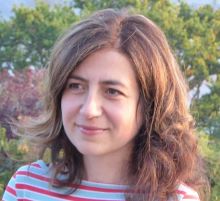Theoretical Co-Investigators
Peter Ashwin

Professor of Mathematics Peter Ashwin specialises in dynamical systems theory and computational modelling. At The University of Exeter since 2000, Peter previously held teaching and research positions at Surrey, Warwick, Nice (France) and Marburg (Germany).
His main interests are in nonlinear dynamical systems and applications: bifurcation theory and dynamical systems, especially synchronization problems, symmetric chaotic dynamics and spatially extended systems and nonautonomous systems. Applications of dynamical systems that he has been studying include climate (bifurcations, tipping points), fluids (bifurcations and mixing), laser systems (synchronization), neural systems (perceptual rivalry, intermittent models), materials and electronic systems (digital signal processing), biophysical modelling (cell biology).
Particular themes running through Prof. Ashwin's work include symmetries and intermittent behaviour, and the structure of attractors, in particular, riddled basins of attraction and associated phenomena. He also has interests in random dynamics/stochastically forced systems and in low dimensional dynamics/ergodic theory.
Current research projects include the mathematical modelling of paleoclimate transitions, molecular networks, phase change materials in data storage media, using heteroclinic networks to model functional dynamics in neural and other biomedical systems and tipping points in nonautonomous systems with applications in climate and finance.
Ivana Gudelj

Professor of Evolutionary Systems Biology at Exeter, Ivana studies competition, metabolic cooperation and coevolution among microorganisms and how these interactions affect the evolution of microbial biodiversity, virulence and antifungal resistance. She exploits developments in synthetic and quantitative biology to solve fundamental problems in evolutionary and community microbiology.
Following the award of a PhD in Applied Mathematics from the University of Bath, she subsequently held a NERC Environmental Mathematics and Statistics Fellowship at Silwood Park, Imperial College London followed by a NERC Advanced Fellowship. In 2011, she moved from the Mathematics Department at Imperial to the University of Exeter to set up an interdisciplinary research group where mathematicians, physicists, bioinformaticians, molecular biologists and experimental evolutionary ecologists would work together and share ideas. Her work is currently funded by an ERC Consolidator Grant, an ERC Proof of Concept award and the Leverhulme Trust.
Read more information about Prof Gudelj’s interdisciplinary work here.
Kyle Wedgwood

Dr Kyle Wedgwood is an MRC-funded research fellow in the Quantitative Biomedical Modelling @ Exeter group, housed with the Living Systems Institute. Working primarily within the College of Engineering, Mathematics and Physical Sciences, Kyle works closely with the University of Exeter Medical School.
In his research, Dr Wedgwood applies techniques from mathematical modelling (dynamical systems theory, bifurcation analysis) to understand how networks of cells come together to form biological networks that can perform functional tasks. He is particularly interested in spatio-temporal patterns of neural activity in the brain and their role in memory and spatial navigation, and the synchronisation of electrical activity amongst the insulin-secreting beta cells in the pancreas.
